
Putting off your taxes until it’s too late can be damaging.
Filing your taxes late can mean that you’ll owe even more money. Or, if you have a refund due, it can lessen how much you get back. Either way, you’re losing money.
Read More

If you bought a house or owned in house in 2013, there may be more deductions than you knew about.
For itemized deductions, most people know that you can deduct the interest you pay on your mortgage. Here’s a list more deductions you may be able to take as well.
Read More

Sure getting married means you’ll more than likely change your filing status, but there are also some other administrative things that need to happen as well.
Congrats on getting married! And now there’s some paperwork that needs to get done. Here’s a list of some steps you need to make before filing your taxes with your new spouse.
-
The first thing you’ll want to do is update your information with the USPS so any tax information will be sent to the right address.
Read More

Not sending out 1099s can be costly. Here’s what business owners are responsible for.
If you used independent contractors such as graphic designers, consultants, and attorneys, you are required by the IRS to send a 1099 if you paid them more than 600 dollars in the tax year at hand. Not doing so can result in a penalty of 250 dollars; that can really rack up quick if you used several contractors throughout the year.
Read More
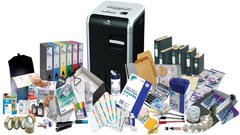
The distinction between capital expenditures and expenses may seem obvious. But the IRS may see it differently.
There are capital expenditures and there are expenses. And most of the time, the line between them seems pretty clear to business owners come tax season. But there can be some gray areas.
Read More

If you incurred a significant amount of healthcare and dental cost costs last year, you may be eligible for a deduction when making your itemized deductions.
There are several things that you can deduct provided your healthcare costs were over at least ten percent of your yearly gross income:
- Surgeries
- Hospital Stays
- Prescriptive Eyewear
- Prescription Drugs
- Doctor Visits (including therapists and medical counsellors)
- Travel Costs (if you had to travel for a specific treatment)
Read More

If you’re taking care of a parent in their sunset years, you may be able to claim them as a dependent.
It doesn’t have to be a parent per se, it can be a family member that you are giving care to. It can be a family member such as an aunt or uncle.
Read More

Did you invest in making your home more energy efficient last year? If so, you may qualify for a tax credit.
If you bought new insulation, doors, windows and/or roofing that improved the efficiency of your home, you may be able to get a credit of up to 10% of your costs. If you went really green and installed some serious energy savers such as solar panels or installed a wind turbine, you may get a credit for up to 30% of the installation costs.
Read More

If you’re self-employed, there’s a treasure trove of expenses you can deduct.
There are all sorts of expenses you can deduct as a result of being self-employed. It’s important to note that even if you’re a full-time employee at a company but have a business on the side you can still deduct those expenses.
Here’s a list of expenses you can deduct:
Read More

Budgeting the same for all the months is a pitfall. Here’s some things unique to January that you should be budgeting for.
Read More
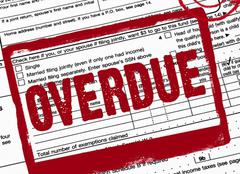
Receiving a notice from the IRS can be daunting. Here’s some facts to eliminate the fear of the unknown.
There are a multitude of reasons the IRS sends notices to millions of taxpayers per year.
More times than not, a notice sent by the IRS is specific to one issue. The most common reasons are:
- Request for Payment
- Notification of Account Changes
- Request for Additional information
Notices from the IRS are always sent by mail, so no need to fret missing an email from the IRS.
Read More

Children may raise your blood pressure but they can lower your taxes. Here’s how:
Depending on your situation, there are a few ways children can lower your taxable income.
Read More
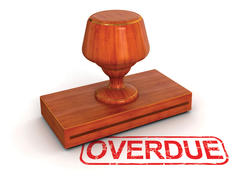
Dealing with unfiled past taxes isn’t as stressful as it you might think.
The longer you go without paying your taxes and filing a claim, the more expensive it gets. So it’s best to take care of it now. Even if you know you can’t pay all you owe, it’s best to make sure you file on time as you may qualify for a payment plan. However, paying by the due date is the way to go about paying the least.
And if it’s already late, here’s what you need to do:
Read More

A third of major retailers’ revenue comes from the last 2 months of the year. So obviously the Holiday season gets people to spend way more than usual.
Let’s face it, there’s lots of pressure to buy gifts for lots of people. It seems once the buying starts, there’s more and more people you think of that you should buy a gift for. So we have 3 questions you should ask yourself before buying a gift for someone.
Read More

If you sold your home this year for a profit, it may not be taxable income!
In most cases, if your home has been your primary residence 2 out of the 5 years you’ve owned it, you may not have to report it as income. Usually, you don’t have to report up to $500,000 dollars for joint returns—$250,000 for individuals.
If you received a 1099s, you’ll need to report the sell of your home as income however. But generally, the sell of your primary residence can be excluded.
Read More

Deduct the money you put towards a Health Savings Account!
Contributions you make to a Health Savings Plan are deductible and the withdrawals you make from it are tax free when you use the money towards medical expenses.
If you are over 65, and you make a withdrawal to pay for something that is non-medical related, An HSA (Health Savings Account) works much like an IRA.
Read More

Sure you’ve got an idea of what you’re gonna spend on Holiday gifts but what about all the costs that sneak up on you?
Have you ever found yourself saying, “I only spent x amount of dollars on gifts; where did all of my money go?” If so, there lots of places throughout the Holidays you get “twenty-dollared to death.” Here’s a look at some of the most common leaks in your Holiday budget.
Read More

Looking for ways to ensure there’s some extra money at the end of every month? Cut out these 4 expenses.
Just because affordable is in front of affordable luxury, it doesn’t mean you should afford it. There are lots of big ticket luxuries that we’d love to indulge ourselves in but we responsibly deny ourselves on a regular basis only to make those big ticket purchases when it is most wise. But as a reward for saying no, we often fall prey to making “affordable” luxury purchases.
Here are a 4 luxuries that are costing you thousands of dollars:
Read More

Grandparents can help with college and lower taxable income.
A grandparent helping their grandchild pay for college can be a win all around. When a grandparent that contributes to a 529 savings plan, it lowers assets within the grandparent’s estate. This helps lowering estate tax.
Another great thing about a grandparent who owns a 529 college savings plan is that the account isn’t taken into consideration when the grandchild is applying for financial aid.
Read More

Travel expenses for charity help lower your taxes.
The IRS allows you to deduct your expenses when traveling for a charity cause. However there are a few criteria that you need to meet to be able to qualify for the deduction.
Read More

So your friend was in a pinch and you thought they’d be good for it and they weren’t. It’s not all bad; you can lower your taxable income as a result.
Maybe you loaned money to a friend to help with a struggling situation. But now it’s beginning to look like you are never getting paid back.
Good ol’ Uncle Sam is there to help you take the sting out of never seeing that money again. As long as the debt has zero value, you may qualify for a deduction up to $3000.
Read More
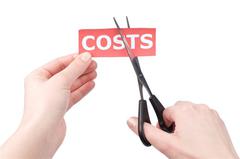
Many businesses regularly overlook 3 common mistakes that wind up costing them dearly and obstructing their path to a successful venture.
A lot of business owners go into business because they are good at making widgets or good at providing a service. New business owners quickly find out that managing financial operations is quite a monumental task. It’s common for business owners to encounter the following pitfalls:
Read More

How does the government shutdown impact the IRS?
The 16-day government shutdown came at a pivotal time for the IRS as they were prepping their complex systems for the 2014 tax season. Only 10% of IRS were open during the government shutdown. This put the IRS behind by almost 3 weeks.
The tax date that taxpayers could start filing was January the 21st. Now with the delay, the IRS will not be accepting returns until at least January 28th–however no later than February 4th. The IRS will be confirming the dates sometime in December.
Read More

Bundle expenses for itemized deductions.
Will your itemized deductions for 2013 be right around the standard reduction amount? If so, you can bundle expenses for every other year and claim the standard deduction in the in between years. Over two years, this will significantly cut how much income you’re taxed on.
Read More

Deferring income could lower your taxes!
If you work for yourself and pay your taxes in cash, it may be a good idea to hold off on sending out invoices until towards the end of the year. And if your clients pay you net 30 or 60, there’s a good chance you won’t receive payment until 2014. By doing so, you can lower your tax bracket which will lower your taxes.
Another way you can defer income is to make deductible purchases this year that you have been planning on making in 2014. This will lower your taxable income and save you money on taxes you could owe.
Read More

Did you know anyone paid for babysitting has to report that income to the IRS? Or let’s say you and a neighbor want to trade cars, you’ll still have to pay taxes on what the fair market value of the car you bartered. But not all income is taxable. Here are some examples of income you don’t have to pay taxes on:
Read More

College tuition is rising. In fact, it has risen in costs 500% since 1985! It is outpacing inflation by 121%. Not only is it outpacing inflation but it has eclipsed rising healthcare costs by 286%! Yikes!
The average student goes in debt for about $20,000 and 8% of students have a loan of $40,000 or more. So what is the best way to save for college to ensure your children aren't swamped in debt for all of their career?
Here's the best way to be ready to pay for college:
Read More
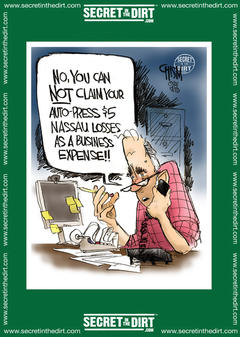
Looking for a new job isn't actually ‘taxing' after all. Did you know that you can deduct costs related to your job when you file? All the things like paying for LinkedIn Premium, hiring a recruiter and good ol' printing and mailing resumes can add up.
Here's a list of common deductions you can take:
Read More
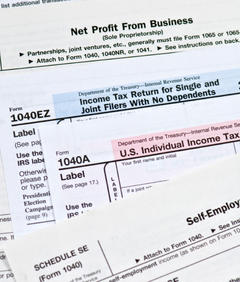
If you are starting a new business it's important you start out on the right foot with the IRS.
You'll want to make sure you correctly identify how you will classify your business for tax purposes. Not correctly choosing the right one can leave you vulnerable to tax penalties and liable for damages caused by your business.
So it's important to know what's at stake and what best fits the needs of your new venture.
Here are a list of ways you can classify your business:
Read More

Deal with it now!
If you've received a notice or letter from the IRS, it’s best to deal with it right away. The more letters they send out the harder they are to deal with.
Don't Panic.
Read More